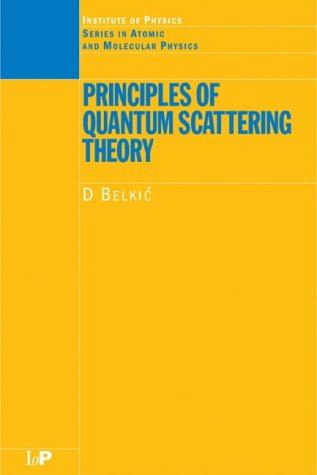

Most ebook files are in PDF format, so you can easily read them using various software such as Foxit Reader or directly on the Google Chrome browser.
Some ebook files are released by publishers in other formats such as .awz, .mobi, .epub, .fb2, etc. You may need to install specific software to read these formats on mobile/PC, such as Calibre.
Please read the tutorial at this link. https://ebooknice.com/page/post?id=faq
We offer FREE conversion to the popular formats you request; however, this may take some time. Therefore, right after payment, please email us, and we will try to provide the service as quickly as possible.
For some exceptional file formats or broken links (if any), please refrain from opening any disputes. Instead, email us first, and we will try to assist within a maximum of 6 hours.
EbookNice Team

Status:
Available4.7
10 reviewsIn scattering, one customarily studies collisions among nuclear, sub-nuclear, atomic or molecular particles, and as these are intrinsically quantum systems, it is logical that quantum mechanics is used as the basis for modern scattering theory. In Principles of Quantum Scattering Theory, the author judiciously combines physical intuition and mathematical rigour to present various selected principles of quantum scattering theory. As always in physics, experiment should be used to ultimately validate physical and mathematical modelling, and the author presents a number of exemplary illustrations, comparing theoretical and experimental cross sections in a selection of major inelastic ion-atom collisions at high non-relativistic energies.
Quantum scattering theory, one of the most beautiful theories in physics, is also very rich in mathematics. Principles of Quantum Scattering Theory is intended primarily for graduate physics students, but also for non-specialist physicists for whom the clarity of exposition should aid comprehension of these mathematical complexities.